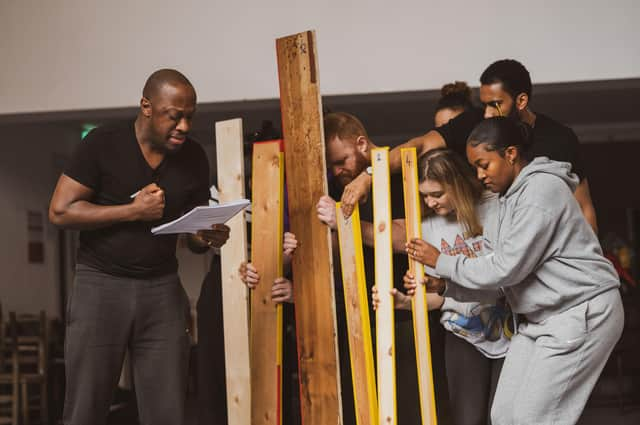'It's about the power of the human spirit' - Giles Terera on The Meaning of Zong


Such was the wealth of material Giles Terera came across when he started work on The Meaning of Zong, he thought he might have two plays on his hands. The first would be about the slave ship Zong which, in 1781, found itself adrift in the middle of the Atlantic. Its malnourished human cargo was getting increasingly ill. As crew and captives alike began to die, Captain Luke Collingwood gave the order to throw any unwell slaves into the ocean. In the following days, the crew condemned 132 people to drown. A further ten threw themselves overboard, a gesture Collingwood would call an "act of defiance".
"It is an extraordinary voyage," says Terera, winner of the 2018 Olivier Award for Best Actor in a Musical for his role as Aaron Burr in Hamilton. "From the beginning, it is fraught with craziness and mishaps. The ship is built by the Dutch, the British win it, then it sits on the west coast of Africa for six months before a Liverpool trader buys it. They get the name wrong – it was a Dutch ship called the Zorg – they cobble together a crew, some of whom are Dutch, some of whom are British. So from the beginning, the whole thing is a mess."
Advertisement
Hide AdThe incident became the subject of a court case after the ship's owner, William Gregson, made an insurance claim for the loss of his slaves. He was initially successful, but when the insurers appealed, the judge overturned the ruling. He condemned the ship's bad management and inadequate water allowance. This was a lucrative business and the owner had crammed 470 slaves onboard, o